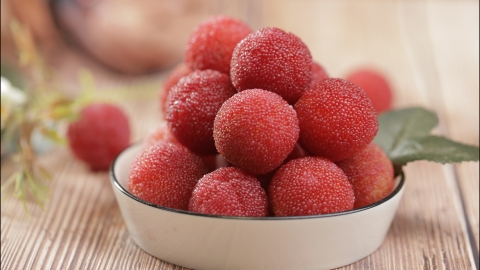Does waxberry promote milk production or reduce lactation?
Generally speaking, waxberries neither promote nor suppress lactation and can be consumed in moderation by breastfeeding women. Waxberries are rich in nutrients and can help nursing mothers replenish energy, although they do not directly stimulate milk production or inhibit milk secretion. The details are as follows:

Waxberries contain abundant vitamin C, B vitamins, organic acids, and minerals such as calcium and iron. Consuming them helps nursing mothers supplement their nutrition and enhance their immune system. The dietary fiber in waxberries promotes intestinal motility and helps relieve common postpartum constipation. When mothers feel physically comfortable, they can breastfeed more effectively, thereby indirectly supporting milk production.
However, waxberries are tart and relatively high in sugar. Excessive consumption may stimulate gastric acid secretion, causing stomach discomfort, and could lead to blood sugar fluctuations. Additionally, the surface of waxberries easily harbors bacteria and tiny insects; therefore, they should be soaked in salt water for 15–20 minutes and thoroughly washed before eating to avoid gastrointestinal infections. If a mother notices any allergic reactions in her baby after consuming waxberries, she should stop eating them immediately and monitor the situation closely.
Adequate milk production during breastfeeding relies on sufficient protein intake, increased fluid consumption, and effective sucking by the baby. No single food can play a decisive role. A balanced and varied diet is essential to support maternal health during lactation.




